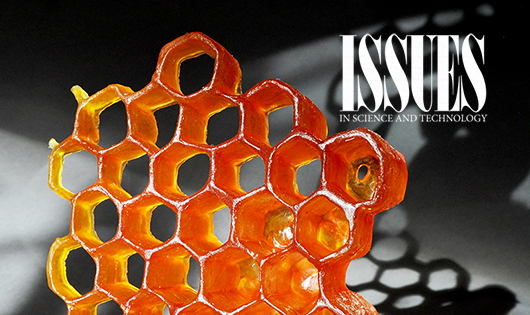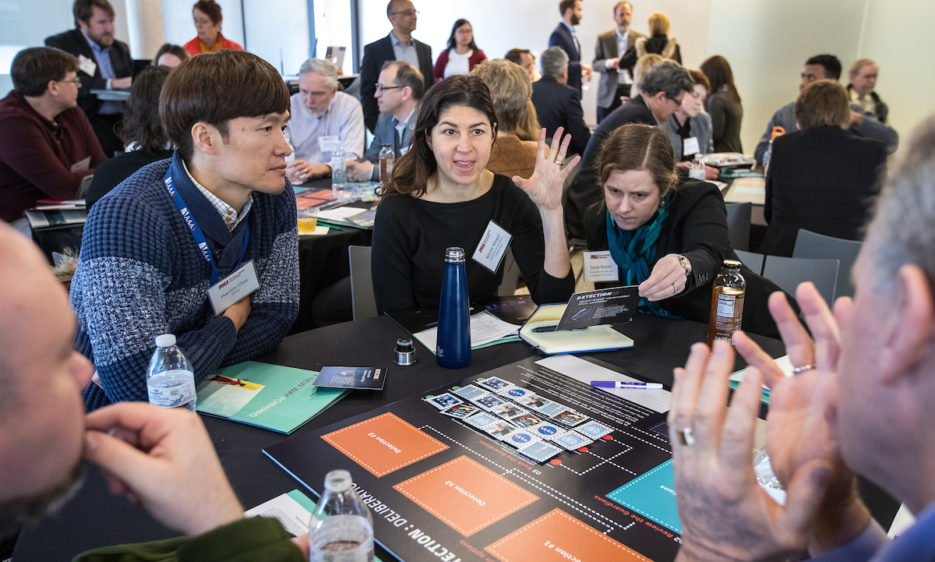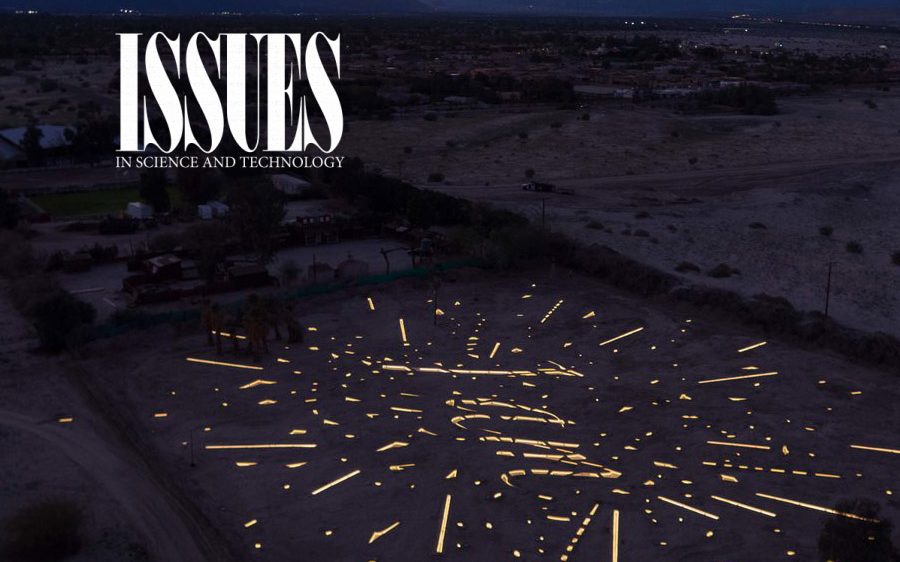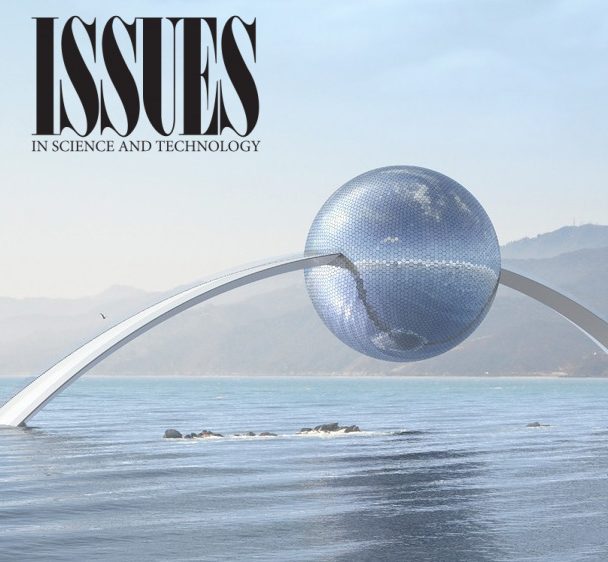CSPO News In the Press
-

Spring 2018 Issues in Science and Technology
The latest issue features compelling policy proposals that can help society better manage momentous changes.
Can policymaking keep pace with the social, technological, and environmental upheavals we are currently experiencing? That question is central to several of the Feature essays in the Spring 2018 Issues in Science and Technology.
-

How the Public Can Inform Science and Technology Policy: The Case of Planetary Defense
How can participatory technology assessment (pTA) be used to impact science and technology policy?
CSPO and partners brought a variety of members of the Washington science policy community, media and academic organizations to participate in a mini-version of a public deliberation on asteroid detection to demonstrate the value of the pTA process of engaging citizens in informed and facilitated dialogue with experts and decision-makers.
-

Winter 2018 Issues in Science and Technology
What role is there for policy expertise when evidence, facts, consistency, and honesty seem increasing neglected in Washington, DC's political circus?
Even as political discourse in the United States has devolved into cable-news shouting, most experts remain committed to addressing national challenges with thoughtful and pragmatic approaches. We are pleased to feature several of them in the Winter 2018 Issues in Science and Technology.
-

Helping Communities Prepare for a Hotter, Drier Future
In a unique forum discussion, citizens deliberated strategies for dealing with extreme heat and drought.
As the Southwest experiences higher average temperatures and prolonged drought conditions, increasing resilience to these climate hazards through citizen deliberation and community preparedness has never been more critical.
-

Spring 2017 Issues in Science and Technology
The latest "Issues" looks at climate engineering, big science projects, diversifying the research community, and more.
The Spring 2017 “Issues in Science and Technology” explores the potential for intervening directly in the climate system to address the risks posed by climate change. Experts look at ways to responsibly research geoengineering, the governance of a geoengineering program, and the feasibility of capturing carbon directly out of the atmosphere.
-

Winter 2017 Issues in Science and Technology
The newest "Issues" explores clean energy transitions, the perils of science journalism, infrastructure and democracy, and more.
The Winter 2017 “Issues in Science and Technology” examines the global energy system’s transition from fossil fuels to cleaner alternatives, finding signs of progress (and some discouraging failures) everywhere from India to Germany to the United States.
-

Fall 2016 Issues in Science and Technology
The newest "Issues" looks at the criminalization of immigration, middle-skill jobs, chemical safety, and more.
The Fall 2016 “Issues in Science and Technology” explores how undocumented immigration and mass incarceration have become legal forms of oppression—and how the solution might be addressed by acknowledging a right to social inclusion.
-

The Future of Conflict
Our newest publication explores the emerging technologies that are destabilizing modern conflict.
We live in a world where the opportunities for conflict are rapidly multiplying, and where the accelerating evolution and democratization of military and security technologies make such conflicts far riskier. This rapidly evolving environment is destabilizing geopolitical and technological systems in ways that make much existing conflict strategy questionable, if not obsolete.
-

Can Science Be Saved?
In a landmark new essay, Daniel Sarewitz explodes our myths about science and how it's supposed to work.
“From metastatic cancer to climate change to growth economics to dietary standards, science that is supposed to yield clarity and solutions is in many instances leading instead to contradiction, controversy, and confusion.”